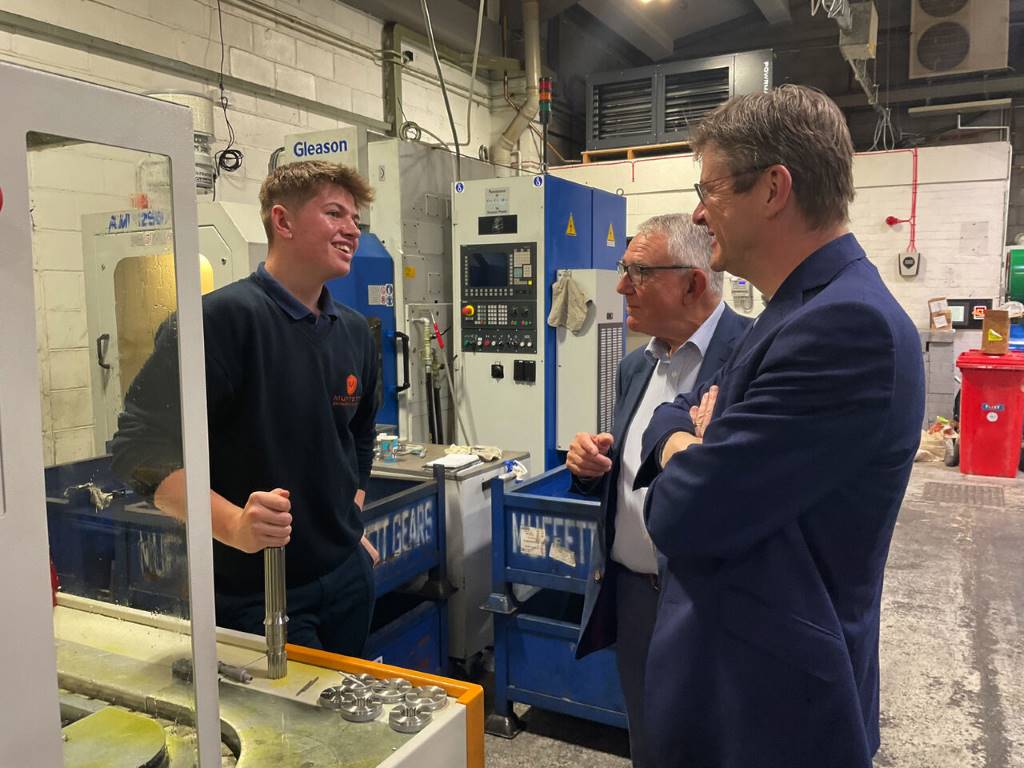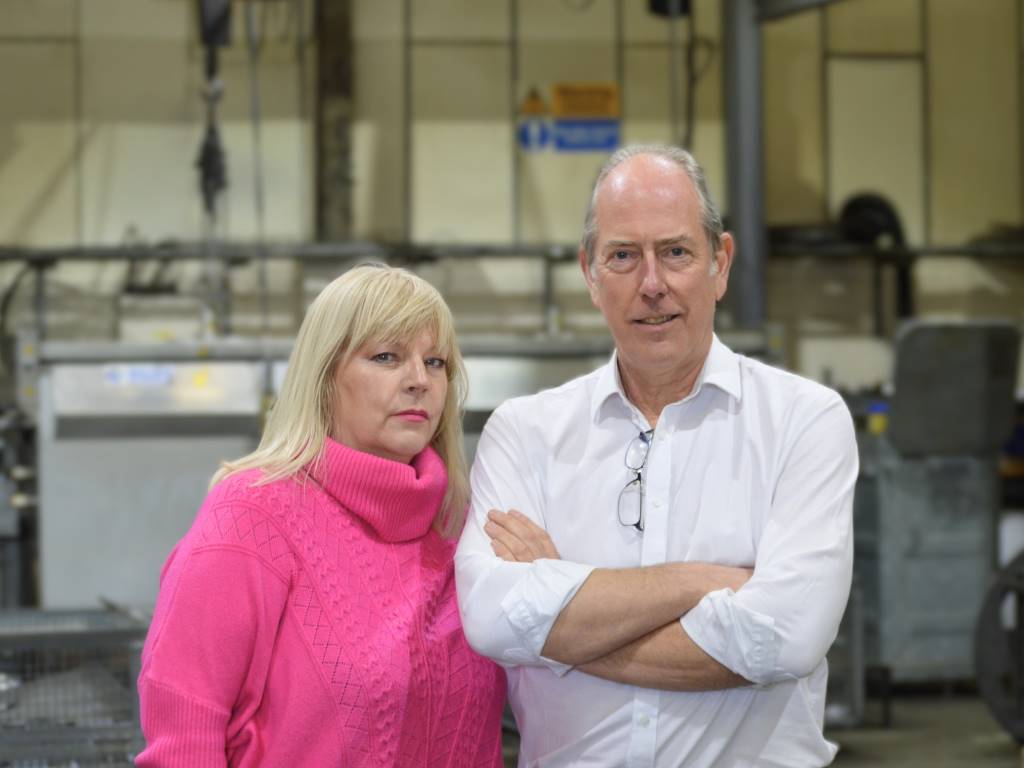Aerospace supplier reduces production process from 90 hours to 18

A Lancashire-based precision engineering company, which supplies to the LEAP aircraft engine, has reduced production time drastically by installing Industry 4.0 technologies.
T&R Precision was incorporated over 20 years ago by father and son engineers Ray and Tim Maddison and has grown to be a key part of the supply chain to some of the world's biggest aircraft manufacturers.
With a staff of 70, the 24-hour-a-day production factory produces parts for nacelles, the housing that surrounds the engine on an aircraft.
The uncertainties caused by Brexit has prompted T&R to look beyond its European customer base and explore how Industry 4.0 technologies can secure the future of the business.
It believes it has found a unique manufacturing method that will boost productivity levels and revenues, open new global markets and give it a major advantage over its competitors.
The challenge
T&R has been awarded a contract to produce parts which ultimately end up on the GE/Safran LEAP engine, which is used on the Airbus 320Neo and Boeing 737 Max aircraft.
These parts are manufactured using a hard metal called Inconel, which is both difficult to cut and machine.
Currently, to be able to produce a batch of 12 parts, the process involves four or five different machines and takes about a week to complete.

Using several different technologies, T&R has found a way of producing the same set of components in a fraction of the time, using just one machine.
Managing director Tim Maddison said: “As a subcontractor, we are used by our customers to find a cost-effective solution where capacity is a major concern on these programmes.
“This is because the current manufacturing process takes a long time and can be problematic.
“If we do it the same way, we will run out of capacity and skilled labour. We need to have a competitive solution in the long term.”
The solution
T&R’s all-in-one fully automated machining system involves applying new software and hardware solutions to a 5-axis CNC machine. This overcomes the problems with aligning and holding the parts in place during manufacturing.
The solution also streamlines and speeds up the inspection process by sending the components’ measurements electronically to the quality control department.
Meanwhile, other software will integrate data from the shop floor to its management team – which includes Tim’s brother Nick - providing real time electronic reporting and allowing every order to be tracked and integrated into the supply chain.
“When I sat down and told the team that we needed to find a way of doing it all within one machining cell it raised a few eyebrows,” Tim said. “But when we broke down the problem, we realised that the technology existed, all that was missing was the application.”

The arrival of the Made Smarter pilot gave T&R the confidence to invest to prove the concept works.
By deploying industrial digital technologies such as IIoT, automation, systems integration, data acquisition and data analytics, and cloud, T&R has found a way of reducing a manufacturing process from 90 hours to 18.
The benefits
Tim is understandably excited about the possibilities of this transformative project.
“A unique, ‘future state’ manufacturing method will provide us with a significant competitive advantage over our principal customer’s in-house manufacturing processes,” he said. “It will reduce the number of operations, machines and man-power required to manufacture the components, providing a step change in our productivity and efficiencies.”
T&R forecast a 33% revenue growth over the next three years, primarily in export sales destined for the USA.
This will help the regional economy by boosting GVA by £452,000 over the next three years.

New machining methods and software will push the boundaries of their current manufacturing thinking and lead to up-skilling of T&R’s engineering, operations and quality personnel.
The future
The first machine – with a 30-station robot cell capable of holding 400kg – will be in place by the end of the year. Its design has also included a second machine to contend with increases in orders.
Tim said: “Our biggest customer is European, but since Brexit we have stagnated with our European partners due in the main to the uncertainties associated with our exit. As such we need to sure up future contracts and explore other world markets.
“If we develop a manufacturing system which ticks all the boxes for our customer and in turn their customer, we are pitching for not three or five years, but the life of aircraft - a 15-year contract.
“The investment and support of Made Smarter will create stability for the company and workforce and give us the confidence to invest in the future.”
Made Smarter www.madesmarter.uk













